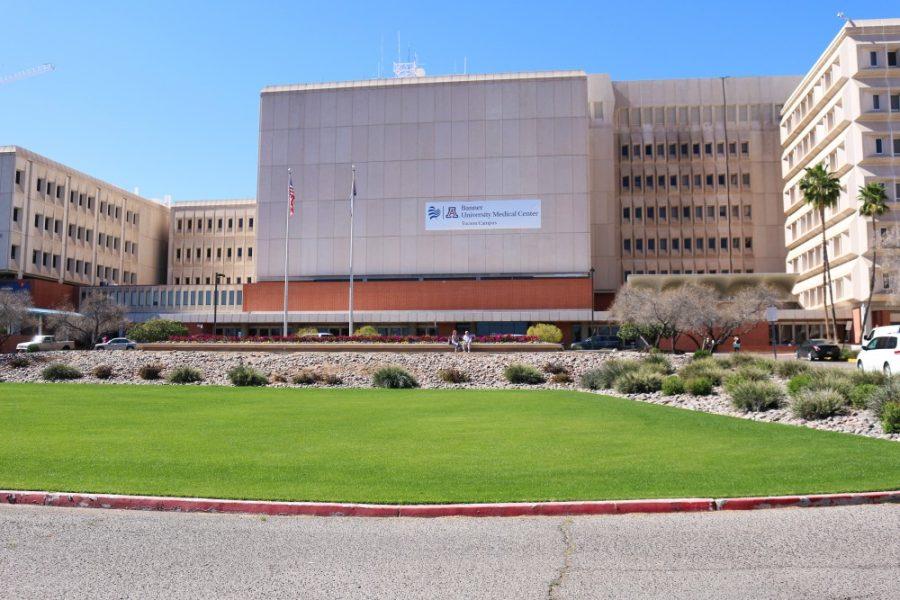Gun violence has long been an issue all across the world and especially in the United States. According to the Gun Violence Archive, there were more than 14,000 gun-related deaths in the U.S. in 2018 alone. Tucson is no exception.
Since 2014, Banner University Medical Center has treated around 850 patients for gun shot wounds. Dr. Bellal Joseph, the chief of trauma at Banner –University Medical Clinic , was inspired by these numbers to conduct research that would help the community better understand why gun violence continues to increase.
“Gun violence is on the rise across the country,” Joseph said. “For the first time, we’re actually trying to focus on ways we can interject and reduce the gun violence epidemic.”
With national data, Joseph has found that victims of gun violence caused by more violent weapons, such as semi-automatic guns, are more likely to experience symptoms of PTSD than other gun violence victims. On a local level, Joseph has recorded a number of different trends among gun violence patients that come to Banner UMC.
“Some interesting things we’ve found were that a majority of the victims were between the ages of 15 and 50,” Joseph said. “A majority of the victims were male. 80 percent were victims of assault.”
The other 20 percent of gun wound victims suffered either a self-inflicted gun wound or were the victim of an accidental shooting. In his research, Joseph found that intoxication was a major trend among victims of gun wounds.
“More than half of the victims were intoxicated,” Joseph said. “Alcohol was the number one [substance found], drug use, followed by marijuana.”
Other factors that Joseph found that influenced the number of gun wound patients at Banner UMC included time of day and location.
“We looked at zip codes in the Tucson area,” Dr. Joseph said. “We thought that that was important because as we want to push towards interventional programs to do community outreach and violence prevention programs.”
The three zip codes that Joseph found had more gun violence victims than others were 85705, 85713 and 85711. Combined, those three zip codes make up more than double the amount of gun wound patients from elsewhere in Tucson.
These numbers, however, only account for the patients that have come to Banner UMC.
“There are many patients that get shot and die at the scene,” Joseph said. “These are just for patients that make it to the hospital.”
With this research, Joseph’s goal is to intervene and get people educated before they become victims.
“Education is the primary [way Banner UMC is trying to help prevent gun violence],” Joseph said. “[Teaching] gun safety, going to schools and interjecting when people are still young and understanding guns and their capabilities.”
RELATED: Student organizes overdose-prevention training increase access to lifesaving techniques
Joseph is also dedicated to educating the community on the dangers of substance abuse, which he’s found to be a common factor among the majority of Banner UMC’s gun wound patients.
“We’re learning now that substance abuse and drug use is correlated with gun violence,” Joseph said. “More than half of [our] gun victims were under the legal drinking age and intoxicated. Marijuana use was the second most common drug use in patients of gun violence.”
Joseph has said that the UA trauma center is dedicated to doing community outreach to prevent substance abuse and gun violence through education.
Unfortunately, some communities in Tucson don’t have the resources Banner UMC has to engage in community outreach to help prevent gun violence.
John T. Martinez, a records specialist for the City of South Tucson, which is in the 85713 zip code, said that South Tucson does not have any community outreach programs to help provide education on gun safety.
“South Tucson does not have enough staff or money to implement [community outreach programs],” Martinez said. “But if we did, we would absolutely implement [community outreach programs].”
The Tucson Police Department could not be reached for comment regarding gun violence in the City of Tucson or programs the department has to help reduce gun violence.
Follow Sadie Cruz on Twitter









